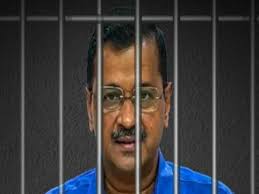As the legal battle ensues, the Enforcement Directorate (ED) has thrown a new twist in the saga surrounding Delhi Chief Minister Arvind Kejriwal. With just a day left before the crucial Supreme Court hearing, the ED has filed a fresh affidavit, staunchly opposing the grant of interim bail to Kejriwal in the Delhi liquor policy case.
ED’s Interim Bail Argument:
In a bold move, the ED has refuted the Court’s suggestion to grant interim bail to Kejriwal, particularly in light of the ongoing Lok Sabha elections. The agency contends that the “right to campaign for an election is neither a fundamental right nor a constitutional right and not even a legal right.” Moreover, it asserts that no political leader, including those not contesting the elections, has been granted interim bail for campaigning purposes. This stance reflects the ED’s firm belief that differential treatment between politicians and ordinary citizens is unwarranted.
Precedent Concerns:
The ED’s affidavit raises a crucial point about setting precedents. It warns that granting Kejriwal interim bail solely on election grounds could establish a dangerous precedent, allowing unscrupulous politicians to evade legal consequences under the guise of election activities. This argument underscores the agency’s commitment to upholding the rule of law and preventing potential misuse of legal provisions.
Read more: LSG Owner’s Public Outburst Sparks Controversy After Humiliating Defeat to SRH in IPL 2024
Supreme Court Hearing:
With anticipation mounting, a bench comprising Justices Sanjiv Khanna and Dipankar Datta is set to hear the matter tomorrow. Notably, during the previous hearing on May 7, the bench hinted at the possibility of granting Kejriwal interim bail with the condition that he refrains from discharging official duties.
Ongoing Legal Proceedings:
Meanwhile, the legal saga surrounding the Delhi Excise Policy Case continues. Former deputy chief minister Manish Sisodia’s plea for bail in the alleged excise policy scam was granted more time by the Delhi High Court. The ED and the Central Bureau of Investigation (CBI) were given until May 14 to respond, despite objections from Sisodia’s counsel regarding the agencies’ assurances to the Supreme Court regarding trial completion within six months.
Conclusion:
As the legal intricacies unfold, the battle lines are drawn. The ED’s fresh affidavit adds a new dimension to the case, underscoring the complexities surrounding legal proceedings involving high-profile figures. Stay tuned for more updates as the Supreme Court hearing approaches and the legal drama unfolds.
